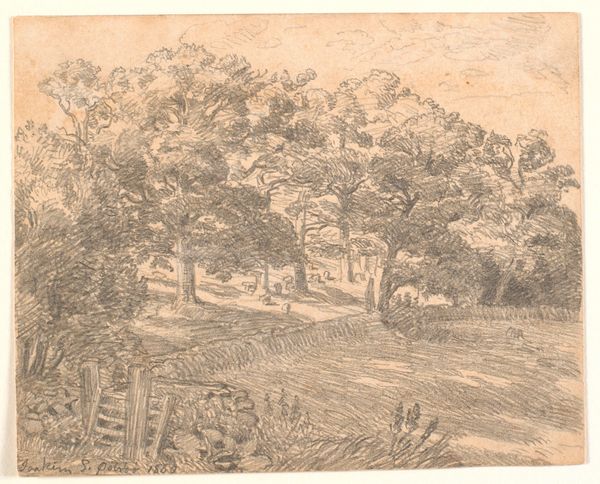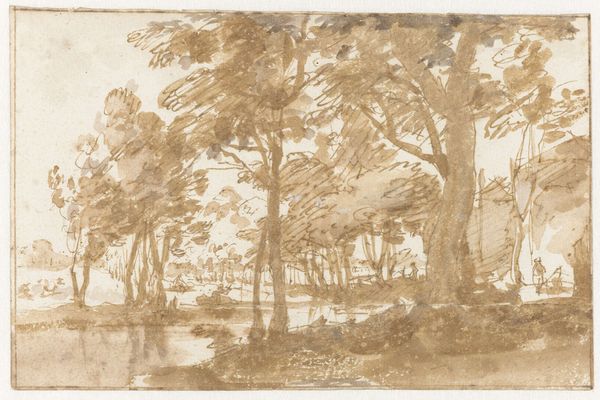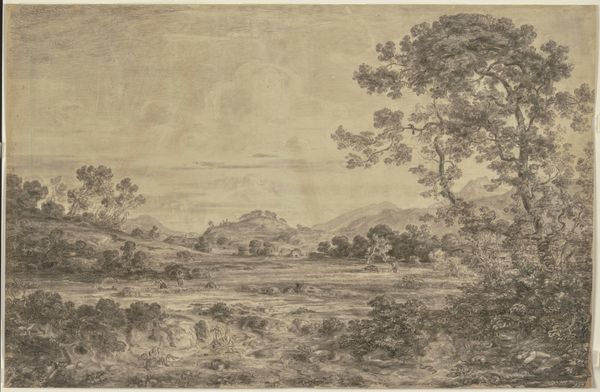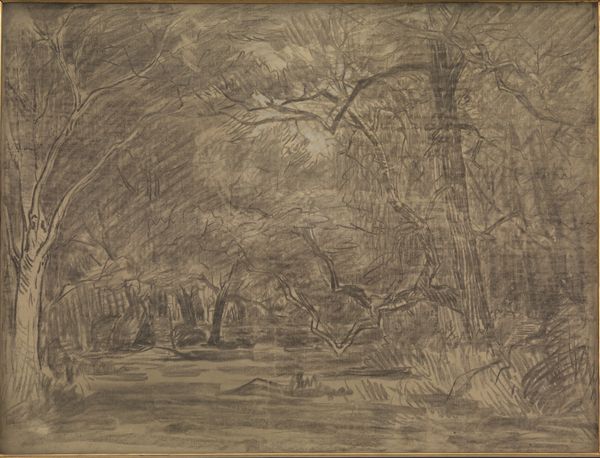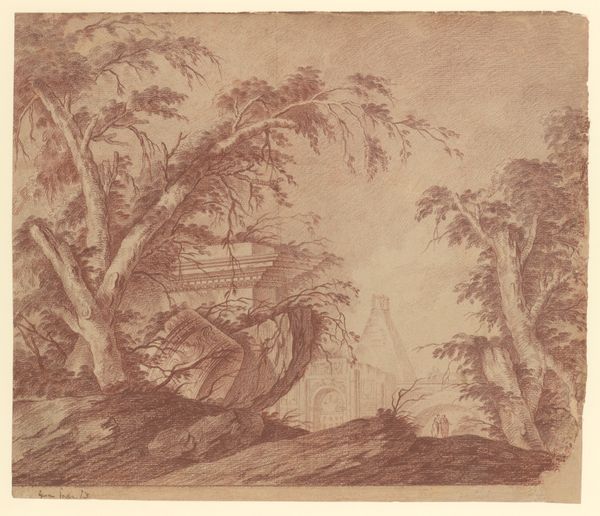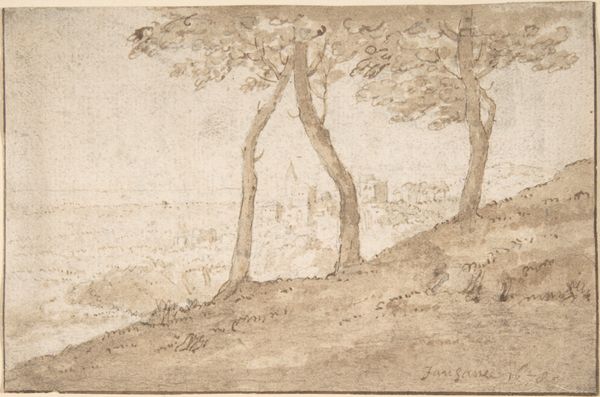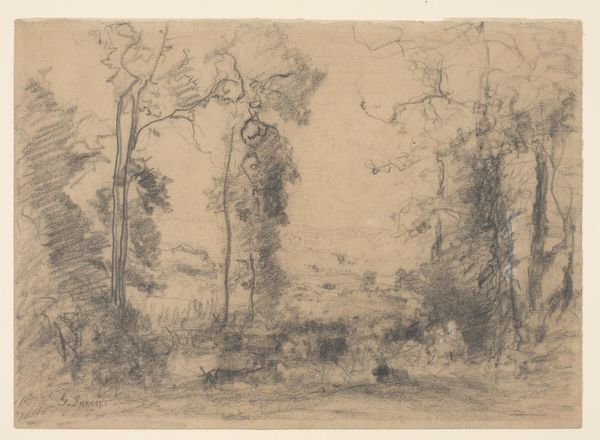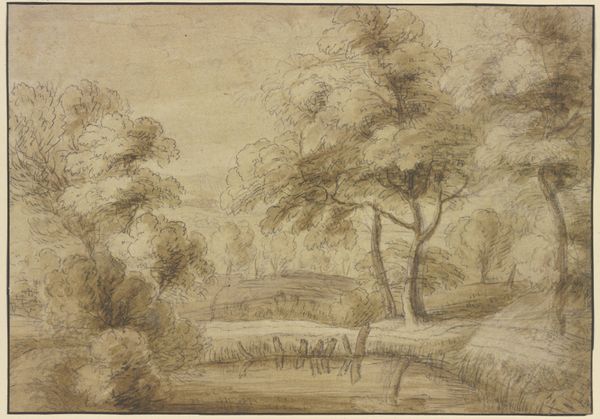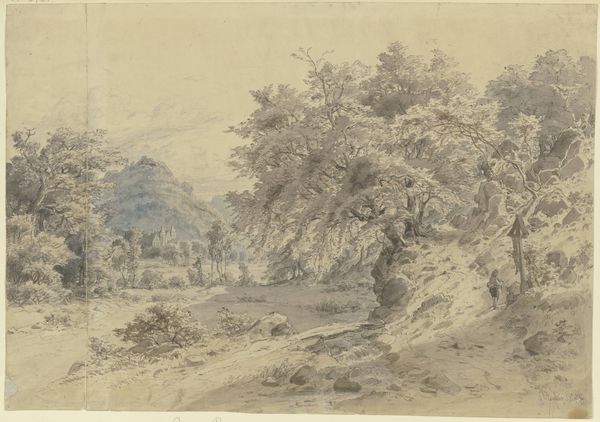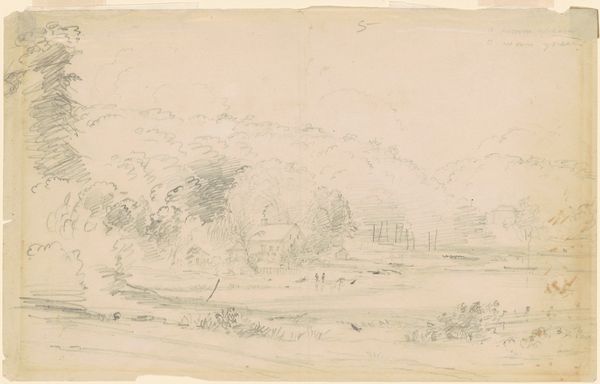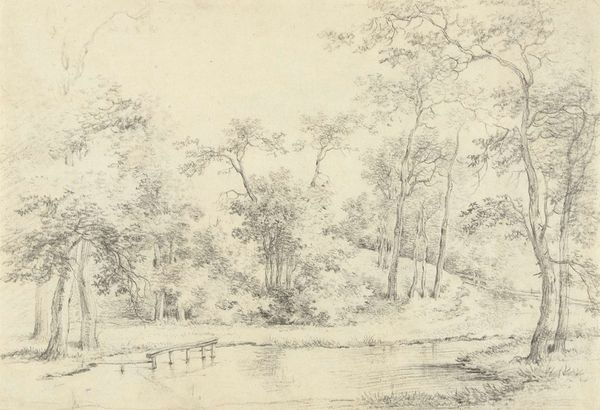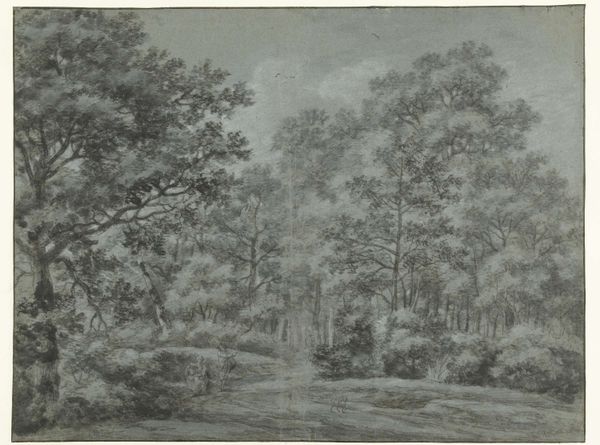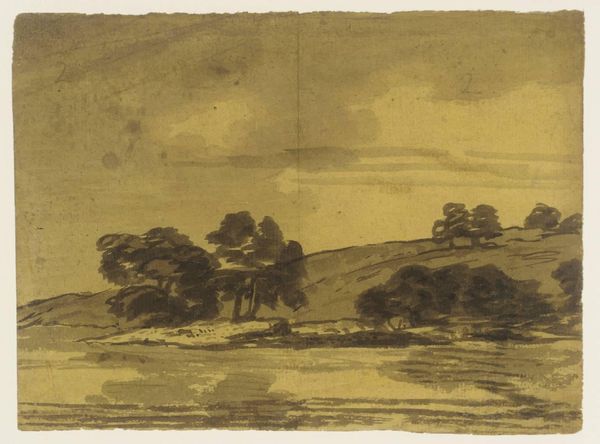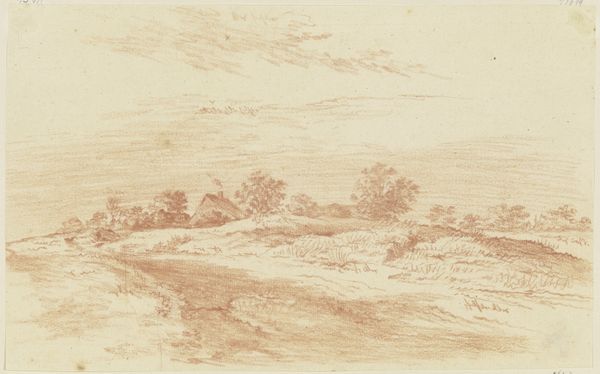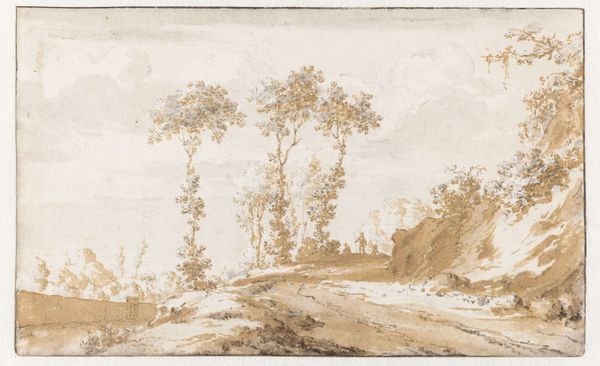
Copyright: Armando Reveron,Fair Use
Curator: Oh, it's like a whisper of a place. Makes me want to drift away, doesn’t it? Editor: Indeed, Armando Reveron's "Playa de Macuto" from 1940 certainly possesses a dreamy quality. Reveron, as a Venezuelan artist, increasingly withdrew from the conventional art world to pursue an intensely personal vision. This watercolor beautifully exemplifies that trajectory. Curator: Watercolor. So translucent. It feels like you could almost step right into that haze. I imagine Reveron himself out there, just becoming part of the scene, fading into it, right? Editor: He essentially did just that. Reveron constructed a studio near the coast at Macuto, obsessively studying the effects of tropical light. His artistic practice became closely linked with that landscape, with some suggesting that this immersion approached a kind of self-imposed isolation. Curator: Isolation isn’t quite the right word, is it? More like communion. He's capturing something deeper than just a visual scene here, almost a feeling of the sun, the heat. Those muted colours...are they sun-bleached or am I imagining it? Editor: That's a very astute observation! Some historians believe that he deliberately toned down his palette in this period, trying to reflect what he called a state of 'whiteness' in his art, a reflection of overwhelming light which effectively washes away intense colours. Think about how Impressionists approached light and then dial it down into something more subjective and psychological. Curator: It is. A personal reality, perhaps? It makes me wonder, did other artists from Venezuela engage in these sensory perceptions? Editor: Venezuelan landscape painting, through the nineteenth and twentieth centuries, often carried with it overt nationalist agendas – grand vistas became emblems of progress and identity. Reveron resists this didactic approach, presenting nature instead through the filter of personal, even unstable, experience. This perhaps, explains his late recognition in his native country, only acknowledged towards the end of the 20th century. Curator: Well, I, for one, feel like I've truly encountered that landscape. Editor: A worthy journey indeed. A vision of landscape stripped to its essence, challenging our perception and expectation.
Comments
No comments
Be the first to comment and join the conversation on the ultimate creative platform.
